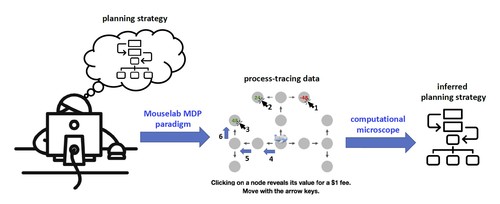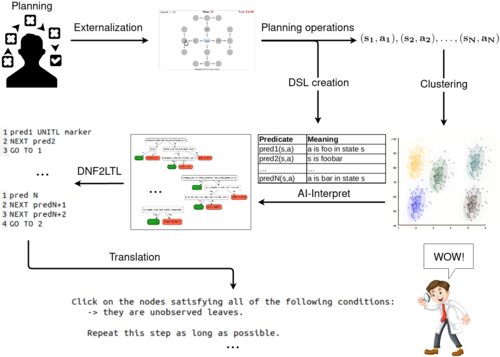2023
He, R., Lieder, F.
What are the mechanisms underlying metacognitive learning?
In July 2023 (inproceedings) Accepted
Singhi, N., Mohnert, F., Prystawski, B., Lieder, F.
Toward a normative theory of (self-)management by goal-setting
Proceedings of the Annual Meeting of the Cognitive Science Society, Annual Meeting of the Cognitive Science Society, July 2023 (conference) Accepted
Srinivas, S., He, R., Lieder, F.
Learning planning strategies without feedback
July 2023 (conference) Accepted
Jain, Y. R., Callaway, F., Griffiths, T. L., Dayan, P., He, R., Krueger, P. M., Lieder, F.
A Computational Process-Tracing Method for Measuring People’s Planning Strategies and How They Change Over Time
Behavior Research Methods, 55, pages: 20377-2079, June 2023 (article)
Maier, M., Cheung, V., Bartos, F., Lieder, F.
Learning from Consequences Shapes Reliance on Moral Rules vs. Cost-Benefit Reasoning
April 2023 (article) Submitted
Becker, F., Wirzberger, M., Pammer-Schindler, V., Srinivas, S., Lieder, F.
Systematic metacognitive reflection helps people discover far-sighted decision strategies: a process-tracing experiment
Judgment and Decision Making, March 2023 (article) Accepted
Amo, V., Prentice, M., Lieder, F.
Formative assessment of the InsightApp: An ecological momentary intervention that helps people develop (meta-)cognitive skills to cope with stressful situations and difficult emotions
JMIR Formative Research, March 2023 (article) Accepted
Skirzynski, J., Jain, Y. R., Lieder, F.
Automatic discovery and description of human planning strategies
Behavior Research Methods, January 2023 (article) Accepted



